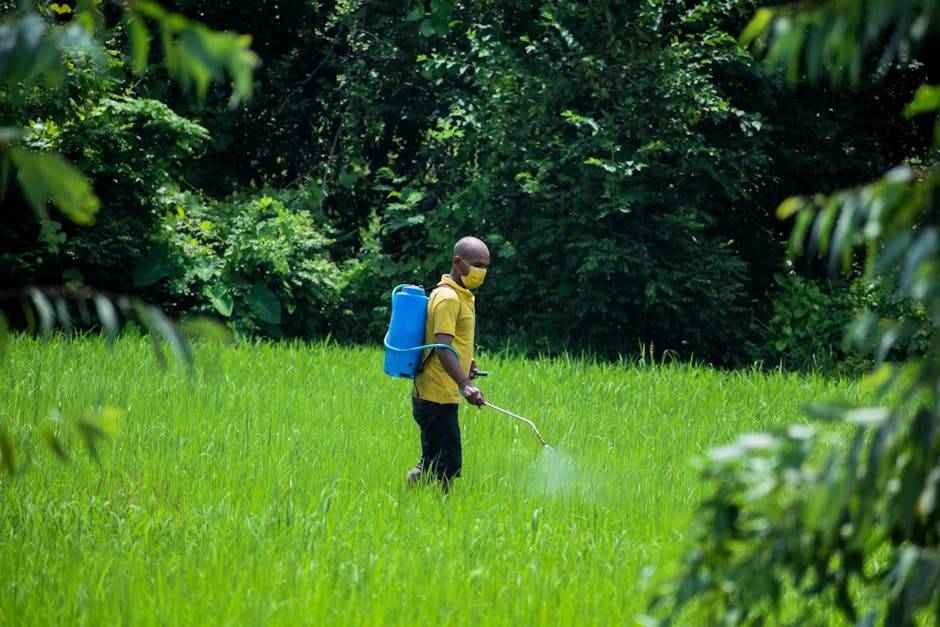Pesticides, essential tools for managing agricultural pests, have undoubtedly increased crop yields and reduced food losses. However, their widespread use has generated concerns regarding potential long-term consequences, affecting not only agricultural ecosystems but also human health and the wider environment. A critical evaluation of this issue requires careful consideration of several key aspects.
Firstly, the diverse range of pesticides and their varied chemical compositions necessitates a nuanced approach. Organochlorines, once common, are now less frequently used due to their persistent nature and potential for bioaccumulation. These chemicals can accumulate in the food chain, posing threats to wildlife and potentially to humans consuming contaminated food. Modern pesticides, including neonicotinoids and organophosphates, frequently target specific pests but raise new concerns regarding their impact on non-target organisms. For example, neonicotinoids have been implicated in affecting pollinator populations, leading to potential disruptions in ecosystem balance. Understanding the specific properties of each pesticide is paramount in assessing potential long-term effects.
Secondly, application methods play a critical role in the overall impact. Spraying, dusting, and soil incorporation are common techniques, each with its own implications. Inappropriate application methods can lead to runoff into water bodies, contaminating surface and groundwater resources. This, in turn, can harm aquatic life and potentially affect human health through the consumption of contaminated water. Proper application protocols, including careful selection of application equipment and techniques, minimizing drift, and adhering to label instructions, are essential in mitigating these adverse effects.
Thirdly, environmental conditions significantly influence the fate of pesticides in the environment. Rainfall patterns, soil types, and temperature variations all impact how pesticides are broken down, transported, and ultimately affect organisms. Certain soil types can adsorb pesticides, reducing their leaching into groundwater. Conversely, heavy rainfall can lead to significant pesticide runoff. A thorough understanding of local environmental conditions is necessary for appropriate pesticide selection and application strategies.
The susceptibility of different organisms to pesticides also dictates their long-term impact. While intended to target pests, pesticides often impact non-target organisms, including beneficial insects, birds, and other wildlife. A critical evaluation of the potential effects on biodiversity is necessary. For instance, the decline of bee populations in certain areas has been linked to the use of certain neonicotinoid pesticides, underscoring the need for a thorough understanding of ecological interactions.
Moreover, the potential for resistance development in pest populations presents another long-term challenge. Repeated exposure to certain pesticides can select for resistant pest strains, rendering existing control methods ineffective. This necessitates the development of integrated pest management strategies that include a variety of approaches beyond the reliance on pesticides. Rotating pesticide use, using biological controls, and introducing crop diversification are some examples of sustainable practices that can address resistance development and minimize reliance on chemical pesticides.
Long-term effects extend beyond the immediate agricultural ecosystem. The potential for human exposure to pesticides, whether through direct contact during application or through consumption of contaminated food, necessitates rigorous risk assessments. Studies on human health effects, including potential links to chronic diseases, are ongoing but still limited in scope. Careful monitoring and research are vital to understand the cumulative impact of pesticide exposure over time.
Furthermore, the impact on human health, while frequently debated, warrants attention. Chronic exposure to certain pesticides has been linked to various health concerns, including neurological disorders, developmental issues, and cancer. Further research and improved monitoring of pesticide residue levels in food products are crucial in protecting human health.
In conclusion, the use of pesticides in agriculture presents a complex issue with potential long-term effects that extend far beyond the immediate agricultural context. Understanding the specific properties of different pesticides, the importance of appropriate application methods, the influence of environmental conditions, and the susceptibility of various organisms are essential components in evaluating these effects. The development of integrated pest management strategies, the promotion of sustainable practices, and rigorous research on human health are crucial to minimize these potential long-term consequences. Balancing agricultural needs with environmental protection and human health is the key to ensuring a sustainable future in agriculture.






